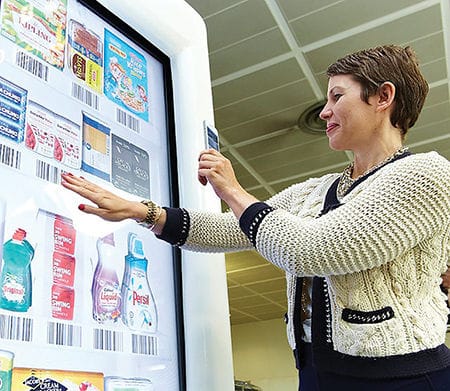The future of business is … augmented.
What you see is what you see, right? Not anymore.
Today, when you look at a street scene, at the stars at night, or at a product in a store, your cellphone provides additional information beyond what you see. GPS systems trace a path through roads that we see ahead of us, Google Sky Map (and equivalent) shows the constellations, and barcode scanners tell us the price of the same product in competing retailers. At its most intimate, Google Glass projects these types of images directly in front of our eyes.
And augmented reality goes beyond the visual. Shazam listens to a song and tells you the title, artist and lyrics. Google Translate listens to someone speaking and offers translated text (and, for Spanish, translated voice). People from different countries and backgrounds can interact.
However, few have considered the implications that augmented reality has for the future of business. For example, in South Korea, customers shop for groceries while waiting for their subway trains. A similar service is available in Heathrow and Gatwick airports in London, for passengers waiting for their flights. Augmented reality turns waiting time into buying time.
Augmented reality can also increase the likelihood of a purchase by showing a customer more about a product. For example, in the new Ikea catalog, customers place the magazine where they are considering placing the piece of furniture, then look through their device to see what the piece would look like in that place in their home. This feature uses a product called Augment, which can be used by any retailer.
However Information Systems and Operations Management Professor Jingguo Wang at the University of Texas at Arlington sees how augmented reality creates concerns for privacy and public safety. For example, individuals with Google Glasses can take videos and record conversations without others’ consent. Also, government agencies can access stored data without proper oversight. His research explores the tradeoff between business applications and security/privacy concerns.
Augmented reality has already changed business practice – who we sell to, how we convey information, and where and when we reach our customers. Where do you see augmented reality influencing your business?
Rachel Croson is dean at the College of Business at the University of Texas at Arlington. www.uta.edu/business






